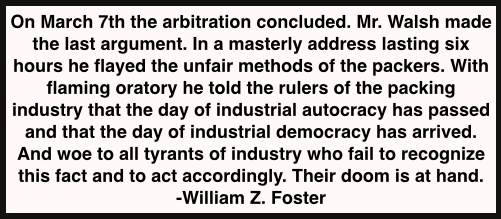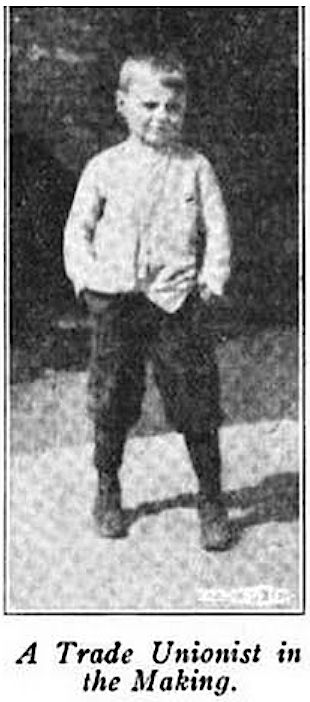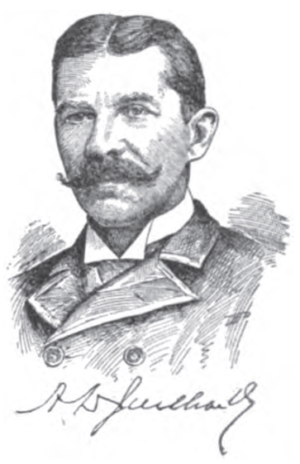
Hellraisers Journal, Sunday April 7, 1918
Victory! for Packinghouse Workers by William Z. Foster, Part III
From Life and Labor of April 1918:
HOW LIFE HAS BEEN BROUGHT
INTO THE STOCKYARDS
A Story of the Reorganization of the Packing IndustryWilliam Z. Foster
Secretary Chicago Stockyards Labor CouncilThe main questions, touching wages, hours and conditions of labor, involved in the Stockyards arbitration hearing before Judge Alschuler, and his decision concerning them, are of overwhelming importance, both in principle and in consequence. Just how far-reaching will be the results of the decision one cannot now forecast. But lips stiffened by poverty will perhaps now learn to smile, and thousands of families will for the first time taste of life.
[Part III]
THE SHORTER WORKDAY
A big battle raged around the question of the eight hour day. In this measure’ the packers saw typified the victory so earnestly sought by the workers. They bent every effort to defeat it. Although compelled to admit the justice, economy and inevitability of the eight hour day as a general proposition, they exhausted every pretext to prevent its consideration, for very obvious reasons, till after the war.
Their strong argument was that, due to the irregular supply of cattle, sheep and hogs, and the limited capacities of the plants, introduction of the eight hour day could only be brought about after months and years of rebuilding and other preparation. To establish it suddenly now would be disastrous. It would reduce the production of vitally necessary foodstuffs full 20 per cent. This would involve starvation for the boys in the trenches and very possibly the loss of the war.
To establish this contention the brainiest superintendents in the packing business piled complexities upon complications. But their efforts were in vain. The workers met and defeated them at every point. Samuel Gompers and Victor A. Olander made the general argument for the shorter workday, and a masterful one it was. Dennis Lane, John Kennedy, Martin Murphy, Tim McCreash, John Joyce and Joseph Selkirk, all skilled butchers, applied it to the packing houses. These union workers destroyed every technical objection raised by the superintendents, checking them one by one. Once, in the midst of the arbitration, they even went to Kansas City to ascertain the exact capacity of certain departments of the packing plants in that city. They routed the experts, horse, foot and dragoons, and proved beyond all question of doubt the practicability and economy of immediately establishing the eight hour day in the packing industry. At the first hour, seeing they were defeated, the packers urged the administrator in case he saw fit to shorten the workday, to make it apply only to the skilled trades—an insidious attack on the unions that did not pass without thorough exposure.


